March 2022: Olive Tree

Volume VI/Issue 12/March 2022


From The Editorial Desk
In the Midst of the Years
In the Old Testament Book of Habakkuk, there is a prayer (3:2) that has several fascinating, compelling expressions. One of them is “bring thy work to life.” That certainly should be our prayer today.
A second one is “when thou art angry, thou wilt remember mercy.” How blessed we are to have access to the Lord’s mercy.
The third expression is actually used twice. It is “in the midst of the years.” As the years pass by, we understand more than ever the need for revival, for mercy and to “make known.” The Lord has revealed Himself or made Himself known (Ps. 19) and He has commanded us to make Him known (Matt. 28:19, 20).
“In the midst of the years”—circumstances, disappointments, hurts, breakdowns, rejection and more—we are heralding the message of the Lord to a lost and dying world.
We are laboring together (I Cor. 3:9) with God to make Him known to as many people as we possibly can. As we do, we stand up, speak boldly and stay steady in giving our generation what it needs to hear.
Even “in the midst of the years,” you and I together can do and should do the Lord’s bidding. As we do what He says, He will add His blessing.
“The Years” Take a Toll! As one year is succeeded by the next one, many of God’s children shrink back from their God-given duties. We’ve “been there, done that”; and our enthusiasm has gone missing. We look around us and “in the midst” of our world going crazy, the task seems overwhelming.
As our critics beat up on us, we start beating up on ourselves. The next thing you know, our excitement has disappeared and our energy has been redirected. We are no longer motivated by the uphill pull.
If we can get along by coasting, we’re okay. But don’t expect us to do any “second mile” stuff (Matt. 5:41).
“Bring thy work to life”
No one prays that prayer unless he has sensed the need and surrendered himself to receive from the Lord what He wants.
After two-plus years of COVID, lock-downs, government mandates, freedom issues and churches functioning at half-throttle, surely we need to see the “work” of God renewed, re-energized and revived.
When that prayer for revival becomes real, we will:
-
Have the joy of the Lord once again.
2. Be excited about church again.
3. Sing the great songs again.
4. Preach boldly and compassionately again.
5. Give full attention to a Christian lifestyle again.
6. Get our testimony and our witness living again.
7. Start winning souls for Christ again.
8. Build strong families again.
9. Invest real money in God’s work again.
10. Keep an eye on the sky for Christ return once again.
Yes, that would be a real revival.
“When thou art angry, thou wilt remember mercy. ”
We can all be grateful for the mercy of God. If we got what we actually deserve, we would all miss Heaven and go to Hell; but God is merciful. And remember, it is only because of His mercy that we escape His anger.
“Not by the works of justice, which we have done, but according to his mercy, he saved us, by the laver of regeneration, and renovation of the Holy Ghost; ”—Titus 3:5.
“Make Known”
Because Habakkuk had heard the Lord’s “hearing (report), and was afraid,” he prayed that the Lord would “make it known.” That means, I think , that we are in need of God’s revelation of Himself and what he has to say to us.
Obviously, when we have the revival we need, God will show Himself through us. We become the instrument in the Lord’s hand to “make known” all that He entrusts to us.
Therefore
Even though we are “in the midst of the years,” let’s not let up and let’s not let down.
Through the years the Lord has been so good to us, even as He is this year.
In gratitude, let’s join with Habakkuk in prayer for the revival we need and give the Lord our very best effort as we do.

What Is Wrong With the World Today?
Everyone asks what is wrong with the world today? And yet, have we looked to our own selves as possibly a part of the problem. If you are not part of the solution, you are part of the problem.
Now here is where Sacred Scripture can be a great help to get us back on course. The problem is that we have our own agenda, so we are not even looking for God's agenda. We know better than God. Let us go to Isaias (53:6) give us the answer: "All we like sheep have gone astray, every one hath turned aside into his own way: and the Lord hath laid on him the iniquity of us all." We have all turned away from God's way to our own way. We have decided that our plan is better than God's plan.
Father Francis Dominic recently wrote: "Don't aim for success. Aim for total obedience for it is there you will find success." These are profound words, because God expresses His plan through obedience.
We need to know where we are in the chain of command. Let us go to the centurion: "For I also am a man subject to authority, having under me soldiers: and I say to one, Go, and he goeth; and to another, Come, and he cometh; and to my servant, Do this, and he doth it." [Luke 7:8] He knew where Jesus stood and where he stood in regard to Jesus. Jesus, I want a favor, but I want to inconvenience as little as possible.
We are all under authority, but in different places. Those in the lower places have a benefit those in higher places lack. They have someone in authority over them, who directs them. Obedience is a great blessing for us. We don't have to ask what God desires of us, our authority is telling us through commands and recommendations. Are we listening for God's voice, which comes to us through those He has placed over us?
Let us return to Isaias (58:3): "Why have we fasted, and thou hast not regarded: have we humbled our souls, and thou hast not taken notice? Behold in the day of your fast your own will is found, and you exact of all your debtors." Saint Francis had a new monk, who was fasting more than he should. One day, Saint Francis took the monk to the dining room and talked to the cook. He had the cook bring him two meals and sat down and ate with the monk. What we see is that we can do a good thing for the wrong reason and yes, we can sin in so doing. God has placed authority over us to direct us.
Our problem today is that we want to question everything, including the authority God has placed over us. This attitude is totally wrong. God created us to obey, not to question. There is safety in obedience. We obey in all things, but sin. If the matter is unclear, we obey. At this time, if there is sin, it is on the superior, not the inferior.
Saint John Eudes gives five ways of discern God's will: by His Commandments; by His Counsels; by the laws, rules and the obligations of your state of life; by the authority of those placed over you or directing you; by events, since every happening is an infallible sign that God so wills, either by absolute or by permissive will.
"If you love me, keep my commandments." (John 14:15) The commandments should be well known to us, and part of our regular study. In fact a third for the catechism is based on the Commandments.
The gift of counsel is to render the individual docile and receptive to the counsel of God regarding one’s actions in view of sanctification and salvation. God counsels many things for us.
We should study the obligations of our state of life and observe them carefully. We have taken on various obligations. Married people, especially if God has blessed you with children, have many obligations flowing from their state of life. Employees have duties attached to their work. Employers have duties to their employees, especially paying a living wage. Pastors have duties to their flocks. A good practice is to sit down and outline the duties and responsibilities you have committed to and God has placed upon you.
We have already considered the umbrella of obedience. Disobedience and lack of respect for all authority is unfortunately most common today. The Commandment to honor our father and mother is the only one with a blessing attached for fulling it and a curse for not fulfilling it.
Finally God allows certain events into our life to guide and direct us. Through these events, He shows His holy will. "For whom the Lord loveth, he chastiseth: and as a father in the son he pleaseth himself." (Proverbs 3:12) Yes God tests us by chastisement to see if we will thank Him for the chastisement He sends us for our own good. All that comes from the hand of Almighty God is truly good, no matter how evil it may appear to us.
"For this is the will of God, your sanctification;" (1 Thessalonians 4:3) Let us become part of the solution by following the holy will of God.

Having a Vision
There is a church in the book of Revelation called Leodicea. And the thing that God began to speak to that church about was Lukewarmness. Leodicea the lukewarm church was told how to get back on track. This is a church that was failing because they saw themselves. "I am rich. I am wealthy." Everything was about them and they couldn't see further than the congregation or the sanctuary. And in Revelation 3:18, Jesus says to them, I need you to anoint your eyes with ointment, with salve, so that you can see again. Because folks, I want you to understand this. From pulpits to Christians, what we see determines really what we say. And if we only see ourselves, then you end up like Leodicea, "I'm rich, I'm wealthy." But if you see the way God sees, then something begins to happen. God opens the eyes of his people.
He had to do it for a prophet in the Old Testament that I want to talk about.
Inevitably, there are names in the Bible that have associations to it. If I was to mention a name, there's probably just one word you can put with that name and know the whole story and know the narrative that the Bible tells about that person. If I was just to mention the name, Jonah, you would say what?... Whale. Even though the Bible doesn't say, whale, it says great fish, but that's another thing. If you say David, you end up with...Goliath. If you say three Hebrew children. You think of a....Fiery Furnace.
Our story to day has that feature. The prophet has an animal associated with him. His name is Balaam and his name is associated with what?.... A donkey, but not just any donkey. This is a talking donkey. Because what I've realized is this is that God will invoke all of creation to get his servants to their God given destination. God is not only not a respecter of persons. He's not even a respecter of animals. God will get a rooster to crow for a denying disciple. He'll get a whale with a big mouth to get a runaway, prophet who won't open up his mouth. He will send Ravens to feed a prophet in seclusion and God will give vocal chords to a beast of burden to stop a prophet from heading in the wrong direction.
The placement of this story of Balaam and a talking donkey is so unusual and unexpected.
As you're reading the book of Numbers, this story seems to just show up for this reason: because it's not a Jewish story. Balaam is a perimeter prophet. He's in fact, a non-Jew. We call that a Gentile prophet. The story of Balaam is a sub-story of the Exodus story.
While the Exodus is happening, there is a little thing happening over here called Balaam and this talking donkey. He is on the outskirts of Israel's journey, and God chose to put this story in the Bible. It's God giving us a glimpse on how he protects his people. When we don't even know it. Can I just tell you something today? You have no idea what God is doing on your behalf right now. And the Jews would have had no idea about the story of Balaam and the talking donkey unless God had record this in the Old Testament. All they know is they're wandering and walking through a wilderness. And over on the outs skirts, you see this whole narrative take place. And while the Israelites are journeying, there is an enemy that is wanting to attack them. But God has a prophet in the right place at the right time that he wants to use. Here's the story in a nutshell. This non-Jewish prophet, this Gentile prophet Balaam is asked by a fearful king of a country called Moab to curse the people of God. This Kings says, I need you to curse them. In a sense, he's gonna try to fight fire with fire because he sees, he can't beat them at their own games. So he's going to use, in a sense, supernatural weapons. And the king is trying to get an upper hand on them. And Balaam, this non-Jewish prophet has to go to God and say, “should I curse them?” Because the Israelites, this group of millions of people coming out of Egypt is new news even to Balaam. That's why he asks God, "who are these people?" And he is given money by this king to curse them. But he refuses, because when Balaam prays about this, this is what God says. God tells Balaam, "Do not go with these men. You are not to curse these people, the Jews for they have been blessed.”
The king comes back again, after this refusal, with more money and prestige and says, "Here's a blank check, whatever you want, you can get it.” And somehow Balaam goes for it. (Numbers 22:22-30)
It never says when the prophet saw the angel of the Lord, it talks about a donkey seeing the angel of the Lord...but not Balaam.
And then in verse 31, here's the part I want you to see.
"Forthwith the Lord opened the eyes of Balaam, and he saw the angel standing in the way with a drawn sword, and he worshipped him falling flat on the ground."
When you're living in disobedience and sin, you can't see clearly. When sin overtakes you, all of a sudden, nothing becomes clear. Listen to Psalms 40:12. This is what it says. "Mine iniquities have taken hold upon me, so that I am not able to look up." Or another way it can be said, "my iniquities have overtaken me, and I cannot see."
All of a sudden, your faced, with the fact that you can't see God, you can't see angels. You can't even see yourself that you're going on the wrong direction. You can't even see what's next. The worst thing to do is take a step into the future. And you're living in sin and disobedience because you don't know what's next because when sin over takes us, everything becomes unclear at that moment.
Balaam, can't speak to what he's supposed to speak about from God, because Balaam, can't see. Balaam, can't speak. His own greed blinded him. He didn't get back on track until he said these words, listen to verse 34. "Balaam said: I have sinned, not knowing that thou didst stand against me: and now if it displease thee that I go, I will return."
He had to start with the sin issue. He had to start with this selfish issue, this greed issue, whatever that thing that seems to overtake us, those are the things that begin to blind us. When finally his eyes, were open and he sees what a donkey saw, but he couldn't see. He says in Numbers 24:2-4.
2 “And lifting up his eyes, he saw Israel abiding in their tents by their tribes: and the spirit of God rushing upon him,
3 He took up his parable and said: Balaam the son of Beor hath said: The man hath said, whose eye ire stopped up:
4 The hearer of the words of God hath said, he that hath beheld the vision of the Almighty, he that falleth, and so his eyes are opened:”
In three verses, before he even prophesize, the bible keeps saying over and over again, “the man who saw”, “the man who sees”, “the man whose eyes were opened”, God was saying before you can speak, I need you to see the way that I see. Before you can announce, I need you to see with my eyes.
If there is ever a cry that I think comes from the heart of God, is that we would see clearly again. Not just see and hear, not just see ourselves, but to see the way God sees again, we need our eyes open. We need to have a vision from God if we want to see our family saved, our friends saved, people around the world saved.
I heard a man tell a story about how all these, boats were pulling up to the dock of this restaurant on the water. And this one little boat was coming in with this husband and wife on it. As they were pulling in and as they were there, everybody started waving because right behind them was this massive yacht going by. And this giant boat is coming behind them. And these two people on their little bogus boat thought everybody was waving to them. And this couple was waving back, and giving a thumbs up. They had no idea what was behind them. This other boat was a massive thing, and people are waving and all these people in the restaurant going...."Yeah." And this couple never looked behind them. They had no idea what's happening behind them because they were so fixated on themselves. They had no idea, this massive thing was happening behind them. They couldn't even see it to know what's there because they never saw it.
That's what we have to begin to do. This is not about us looking at each other and going... “look at us”. There is something massive happening and we need to see what God wants us to see, we need to see that the fields are white unto harvest, we need to have a vision of God or we're gonna find ourselves on our little boats...waving and giving a thumbs up, while people are perishing and going to hell all around us.
We need a vision that sees people as God sees them.
Right after the birth of the Church in chapter 1 of the book of Acts, God needed his Church to not stay in an upper room, but he needed them to go see people the way he sees people. Isn't it amazing, that after the upper room takes place in Acts chapter two, you never hear about the upper room again. Because God wouldn't let them stay up there. And isn't it amazing that the first man to be set free and to be healed was a lame man. That if the Church stayed in an upper room, which means stairs, a lame man can't walk up the stairs to get there.
God needs the Church to come down the stairs to get to them. And so God says, "Hey, I'm gonna let the first miracle of the Church be a lame man. And the only way you're gonna get to the lame man is you're gonna have to walk down the steps yourself." And He says, "I'm gonna need you to see people differently." And that's exactly what he does. So in Acts chapter three, Peter and John see a man that they have seen every day of their life when they've gone to the temple to pray. But the day after Pentecost, and the infilling of the Holy Spirit, they see the man differently now. The Bible says, this man has been there since his birth. They've been laying him there. And all of a sudden, now they see him differently.
How come all those other years before they were filled with the Holy Spirit they walk right by him? But all of a sudden, God opens up their eyes to see this man differently. And Peter and John have been to the temple, but Peter and John now have been to an upper room. They've been filled with the Holy Spirit. Because when you're filled with the Holy Spirit, you see differently. And that's exactly what took place. This beggar wasn't the same person on this day. He wasn't just a beggar, but with Peter and Johns new eyes, from being filled with the Holy Spirit, they saw him as a potential miracle. Listen to it. The Bible says they used to set this man down every day at the gate of the temple, which is called beautiful.
And it says, "And a certain man lame from his mother's womb was carried, whom they laid daily at the gate of the temple which is called Beautiful, to ask alms of them that entered into the temple. Who seeing Peter and John about to go into the temple asked an alms. And Peter, fastening his eyes upon him with John, said, Look on us. And he gave heed unto them, expecting to receive something of them.”
Peter and John , once they came down from the upper room, did not just see the beggar asking for alms, they saw a potential miracle. God doesn't just want open up our eyes for us to see the streets and the homeless again, as potential miracles. But He wants us to see the people that you're sitting next to, to see them differently. To see your unsaved co- workers differently, to see your unsaved family members differently.
I don't wanna sit on my little boat waving while the big thing is passing me by God. I wanna see people the way God sees them.
We need a vision that sees God for who He is
I'm convinced that our country can't see sin because we can't see God. Sin doesn't exist in our country because you remove God. Because in order for there to be sin, you have to have a righteous standard. So if you remove God out of the public places, then it's no longer sin. It is a habit. It is something that needs to be fixed. There' is something that you are born with. It's not called sin anymore because there is no God. When God exists, and he does. That means there's a righteous standard, and then you can have sin. There is no such thing as sin without God. And because God exists, when you see God, then you see sin. When people in the Bible had a vision of God, they also had a vision of their sin. That was the difference. If you can remove God, then you can remove sin. And that's why, if there's ever a time for the church to preach about the greatness of God, of who God is, it is today.
It happened all over the Bible. It happened to Job. He said, I've heard of you by the hearing of the ear, but now my eyes see you. Therefore, I retract and I repent. When he sees God, he repents. When Peter is fishing and sees the miracle, he fell down at Jesus' feet. He sees, Jesus and says, go away from me, Lord for, I am a sinful man. Isaiah's the same thing. He said, woe is me from undone. I'm a man of unclean lips. For my eyes have seen the king, the Lord of hosts. You have John the Revelator, who says, "When I saw him, I fell at his feet as a dead man.
The job of the Church, the job of the Priest in the pulpit is to show the real Jesus. Our job is to preach the word and show the living, resurrected Jesus. If you don't, then we have communicators.
We as Priest and Pastors have a responsibility as an ambassador to show people God. When you preach Jesus, then men encounter who they really are.
As the apostle, Paul grew in the knowledge of God over the years, he grew more disgusted with himself. The more he grew in God, the more he is going like I'm nothing. See in the beginning, this is what Paul said about himself in Galatians chapter one. After his first missionary journey he calls himself an apostle. You know what Paul was doing? I believe He was on the little boat going.....look at me.
Six years later, he writes I Corinthians 15:9 and realizes his little boat's not that great. And he just says, "I'm the least of the apostle. Six years, the more I see God, the more I see myself." Because when you don't see God, you end up like Leodicea. Luke warm. Going I'm rich, I'm wealthy, I have need of nothing.
Oh, how deceived can you be? It's little boat churches, little boat Christianity, and I never wanna live on the little boat. I wanna just point and say, “look at the big boat”. That's what those people should have done.
So Paul starts off with "I'm an apostle." Then he goes seven years later. And He says, "I'm the least of the apostles." And all of a sudden he starts to see God even more and six years later in Ephesians 3:8, he writes, "I'm the least of the saints." He was saying, I'm the lowest one on the totem pole and folks, when he ends it all just before he dies, his last thing he says is this, "I'm the chief of sinners." He goes from little boat Christianity...."I'm an apostle." To, "I'm the least of the apostles. To, "I'm the least of the saints." To "I'm the chief of sinners." He was saying don't look at me and who I am, but look at Jesus.
 On Fasting
On Fasting
We have just begun the Lenten season. It's now heightened alert on prayer, fasting and almsgiving. However, let us remember that these three, prayer, fasting and almsgiving are means to an end. And what is the end : Charity, that we may be a loving person. Becoming loving person is the goal and that is Christlikeness. That is our destination. Prayer, Fasting and almsgiving are mere vehicle to reach our destination.
And so if prayer, fasting and almsgiving does not lead us to our destination which is charity, forget it. According to St. Paul in his letter to Corinthians, " If i have offered my life to be burned, but i do not have charity, iam nothing. "
Fasting is not about denying our selves with full meal. It's end must be charity. Say for example, I fasted for how many hours but at the end of the day i become irritable person, i become unforgiving then, fasting is useless. Since the goal of fasting is charity. Thus in the book of Prophet Isaiah chapter 58, we are being reminded that fasting is not getting hungry. True fasting in the book of Isaiah is all about charity. " feed the hungry, clothe the naked, shelter the homeless, doing justice for the poor..." ( Isaiah 58:6)
That is the real fasting the Lord wants. Hence, next time we deny our selves with food we love, make it sure the money for it goes to work of charity. Let someone lives out of our dying to self. Charity should go beyond rituals and legalism. Christ was crucified and died for the sake of children of God. He did not die just for the sake of dying. Dying is geared towards salvation.
Today if you hear the voice of the Lord, harden not your hearts says the psalmist. Let our fasting blooms into having a heart of flesh not a heart of stone.

Follow Me
My dear friends, now we have begun Lent, the great fast, our journey of penance and purification. We have had several weeks to prepare ourselves for the great fast, and I certainly hope that that period of preparation has served you well thus far, and that you've been able to have a good first week of Lent.
But, even if a person made no preparation, it's still never too late to make a start. As long as we have breath in our body, we can have hope in our hearts. Never too late to make a new and good beginning.
For, wherever we are, we need only to open the eyes of our soul, to look up and to see that Christ comes to meet us. We are always in His mind's eye, and His thoughts and His cares are ever towards us.
This leads us to the great lesson that we ought to learn this week, and that is - more than anything - the essence of our Lenten observance is nothing more or less than simply following our Lord.
You see, all the rest - the fast, the abstinence, giving things up, taking things on - all of these are important, but if they are not in service of following the Lord, they are pointless.
It is instructive that in the Gospel for this first Sunday of Lent, we begin with our Lord's calling of the Apostle Philip. I rather like how matter-of-fact it is. "Jesus went forth into Galilee, and He findeth Philip. And Jesus saith to him: Follow Me." And that's it.
Summed up in just two words, but that is the invitation to each of us. We can respond as we will, of course. But the season of Lent is meant as an assistance to us to every day ever more be able to respond to the invitation to follow the Lord.
And the spiritual journey is very much like the physical journey. That is, in order to do it well, you have to be prepared; you have to know what to take with you, what to leave behind. A person who is making a pilgrimage on foot, or even just going for a day hike is going to have to take along things and leave behind things that a person going for an afternoon stroll around the block wouldn't have to consider.
Imagine, if we were going to be taking a hike, it wouldn't be necessary or even prudent to haul along our refrigerator, entertainment center, or the kitchen sink. All those things are good; they're useful. But they would serve only to slow us down on a journey, causing far more trouble that they are worth. Instead, we would take what is necessary and prudent. We clothe ourselves in view of what we will be facing. We would take water, and perhaps food for the journey, though certainly the food would be of a different quality and quantity than we might be used to at home. We might take along a hiking stick to help us in the way.
The same goes for the spiritual journey during this time of Lent. We have things that we take with us - increased prayer rule, silence, spiritual and corporal works of mercy; and things that we leave behind - foods in certain quantities and qualities, certain physical comforts. All of this again not because food is bad, or that physical comforts are evil in themselves - but they can serve to slow us down, and to cause far more trouble than they're worth.
What is worth the trouble is the journey itself, the following of the Lord - for in following the Lord you are not simply following the idea of the Lord, the memory of the Lord, but you are really and truly following the Lord in closeness to Him, He is leading the way, and He is right there with you.
For in whatever situation, whatever state of soul you might find yourself, you are close to the Lord's heart; He thinks of you; He has you in His mind's eye. And we have the word of today's Gospel on that, when our Lord spoke to Nathanael, He revealed that He had seen Nathanael when Philip had called to him, under the fig tree, even though this was afar off physically. Our Lord, being the Author of all that is, knew Nathanael even before Nathanael had heard of Him.
It is the same with all of us. Today we hear our Lord's call to us, the call for Lent and for every day: Follow Me, He says to us.
For He knows us, He knows our condition, He knows our need for grace and salvation, and from even before His invitation came to our ears, He was watching us and caring for us. And so today the Church echoes the call of Her Divine Spouse, as He says to us: Follow Me.
This is the very essence of our Lenten journey, the following of our Lord Jesus Christ as He leads us to repentance, and purification, justification, and ultimately salvation.
Follow Me, He says. Let us make haste to follow Him.

Biden Making Database of Christians Who Object to COVID Vaccine Mandates
Republican members of Congress are accusing President Joe Biden of targeting Americans seeking religious exemptions from the COVID- 19 vaccine.
“Your administration’s attempt to use the power of the federal government to single out Americans who object to the COVID-19 vaccine on religious grounds is inexcusable and must be withdrawn,” reads the letter, first obtained by the Daily Signal....
The Pretrial Services Agency announced January 11 that it will begin storing the names and “personal religious information” of any employee who makes “religious accommodation requests for religious
exception from the federally mandated vaccination requirement.”...
“The agency’s failure to adequately justify its own policy perfectly illustrates the animus that your administration has shown towards people of faith,” the Republicans added.
The letter is signed by 41 Republican members of Congress....The message to the Biden administration highlights that the Pretrial Services Agency is not the only federal agency creating such lists, noting that there are at least 19 federal agencies that have created or proposed creating lists that track employee religious-exemption requests. — Mary Margaret Olohan, lifenews.com
China Ramps Up New Restrictions on Christian Content on the Internet
The Chinese Communist Party, which has been criticized for targeting Christians and wielding its power of internet censorship through big tech companies, is putting even more restrictions on the
religious freedom of its citizens with a new law regulating online religious content....
The new legislation, known as Administrative Measures for Internet Religious Information Services...will be enacted on March 1....The law mandates an “Internet Religious Information Service
License” for any religious group that wants to disseminate religious content on the internet. But it says only “legally established” organizations can do so, which practically means only groups that are part of the five authorized religions in China can use the internet to distribute religious content....
Even the organizations within the five authorized religions are subject to surveillance and limitations, Bitter Winter reports. As per the new law, “[T]hey can broadcast sermons and lessons, but these would be checked by the authorities for their ‘Sinicized’ content, making sure they promote socialist values and support the party and are not intended as proselytization tools. Religious universities and colleges may disseminate content via the internet only to their students. Any attempt to spread religious content to minors or ‘induce minors to believe in religion’ will lead to the termination of the license.”
Lady Officer Murdered While Pleading for Her Life
A disarmed Illinois police officer desperately begged for her life before a heartless thug executed her with her own gun, state officials say.
Sergeant Marlene Rittmanic, 49, was murdered in cold blood...as she and Officer Tyler Bailey, 27, investigated a noise complaint at a Bradley-area motel.
Bailey was [also] shot during the attack....
“Sergeant Rittmanic was pleading with them to ‘just leave, you don’t have to do this, please just go, please don’t, please don’t,’” [Jim] Rowe [Kankakee County state’s attorney,] explained. “She was desperately pleading for her life.”
Despite her pleas, Sullivan allegedly shot Rittmanic twice in the neck with her own gun. — Sarah Taylor, theblaze.com
Feminist Takes Abortion Pill on Live Television, Brags About Killing Her Unborn Baby
A Satanic cult leader and well-known abortion activist shocked Michigan news watchers [January 22] when she took an abortion pill on live TV during an interview with Fox 2 Detroit....
[Jex] Blackmore appeared on the station’s Let It Rip program to debate pro-life advocate Rebecca Kiessling on the anniversary of Roe v. Wade, the U.S. Supreme Court ruling that forces states to legalize abortion up to viability.
In the midst of their debate, Blackmore held up a pill that she said was mifepristone, the first of two abortion drugs taken to abort unborn babies up to 10 weeks, and swallowed it on-air with a smile....
Blackmore is a pro-abortion radical and an attention-seeker....
As to the abortion drug that she took on-air, mifepristone is responsible for millions of unborn babies’ deaths, dozens of women’s deaths and thousands of complications. — Micaiah Bilger, lifenews.com
Twenty-Nine Killed by Stampede at Liberian Church Crusade
At least 29 people, including 11 children, have been pronounced dead after a stampede at a church gathering in Liberia’s capital, Monrovia [January 19].
Hundreds were in attendance at an all-night...crusade, which took place at an open-air Pentecostal church on the outskirts of the capital...when the incident happened....
According to police officials who spoke with BBC, the stampede occurred after a street gang entered the revival area after a monetary collection was taken at the end of the event....
An attendee named Exodus Morias told Reuters that the stampede began after a group of armed men tried to stage the robbery.
“We saw a group of men with cutlasses and other weapons coming toward the crowd,” Morias said. “While running, some people dropped and others fell on the ground and walked over them.”
Gang violence is not uncommon in the Liberian streets. Armed gangs known as Zogos commit robberies armed with small weapons. — Nicole Alcindor, christianpost.com
NCAA Approves New Guidelines for Trans-Identified Athletes Allowing Each Sport to Decide Policy
The NCAA has unveiled a new policy that will allow each sport to determine its policies regarding the participation of trans-identified athletes as outrage over the allowance of biological males who identify as females to compete in women’s athletics spreads.
The NCAA...oversees collegiate athletics in the United States....The new policy mirrors guidelines recently enacted by the International Olympic Committee that give individual sports leeway in setting their own rules for the participation of trans-identified athletes in sports that correspond with their stated gender identity instead of their biological sex....
Amid the pushback against policies allowing trans-identified biological male athletes to compete against females, several states have passed laws requiring athletes to compete on sports teams that match their biological sex rather than their gender identity. — Ryan Foley, christianpost.com
California to Dismantle Death Row, Turn It Into a “Positive, Healing Environment”
California Governor Gavin Newsom, who three years ago placed a moratorium on executions, now is moving to dismantle the United States’ largest death row by moving all condemned inmates to other prisons within two years.
The goal is to turn the section at San Quentin State Prison into a “positive, healing environment.”...
California...is one of 28 states that maintain death rows, along with the U.S. government....California is merging its condemned inmates into the general prison population....
“We are starting the process of closing death row to repurpose and transform the current housing units into something innovative and anchored in rehabilitation,” California Department of Corrections and Rehabilitation spokeswoman Vicky Waters told the Associated Press. — gopusa.com
Police Officer Wins Settlement After City Suspended Him for Praying Outside Abortion Center
The City of Louisville has paid a Kentucky police officer $75,000 to quickly settle his lawsuit over Louisville’s violation of his constitutional and civil rights. Officer Matt Schrenger sued the city’s mayor, police chief and police department for persecuting him over his off-duty pro-life prayer....
Officer Schrenger is a 13-year Louisville police veteran and recipient of multiple commendations. While off-duty early on a Saturday morning, he stopped to pray quietly with his father on a public sidewalk in front of a closed abortion clinic. For that, he was immediately suspended for over four months (with pay), stripped of his police powers and placed under investigation. — Tom Ciesielka, lifenews.com
Court Overturns $135K Fine for Christian Bakery but Upholds Ruling
An Oregon appeals court told a state agency [January 26] to reconsider its order for a Christian couple to pay $135,000 in damages for refusing to bake a cake for a same-sex wedding on grounds that the state’s actions did “not reflect...neutrality toward religion.”
However, the panel upheld its earlier ruling that their bakery violated state law prohibiting discrimination based on sexual orientation.
Aaron and Melissa Klein, who owned Sweetcakes by Melissa in Gresham, have engaged in years of litigation over an Oregon Bureau of Labor and Industries order punishing them for refusing to make a wedding cake for a lesbian couple. — Michael Gryboski, christianpost.com

The Funny Pharmacy
A joyful mind maketh age flourishing: a sorrowful spirit drieth up the bones. - Proverbs 17:22
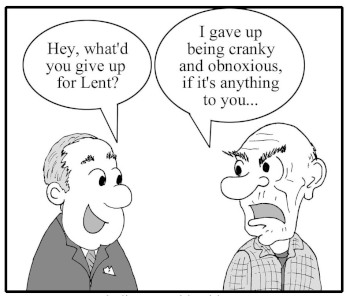
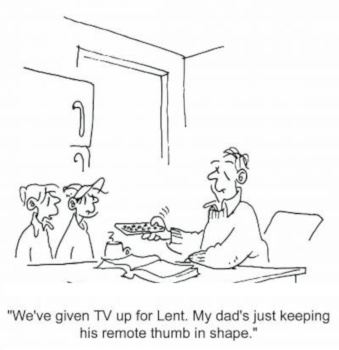
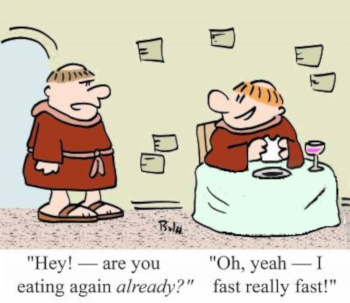

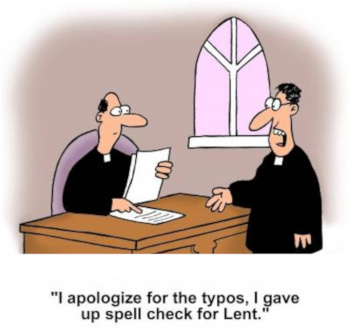

Frequently Asked Questions

Only God can see the heart. Who are we to judge Catholics?
When Jesus talks about judging others, he says, "Judge not, that you may not be judged, For with what judgment you judge, you shall be judged: and with what measure you mete, it shall be measured to you again. And why seest thou the mote that is in thy brother's eye; and seest not the beam that is in thy own eye?" (Matthew 7:1-3)
Jesus then immediately says, "Thou hypocrite, cast out first the beam in thy own eye, and then shalt thou see to cast out the mote out of thy brother's eye." (Matthew 7:5)
So we see here that Jesus is actually not saying to not judge, but instead he is saying to not be hypocritical. He is criticizing those who point out other people's sins, yet sin themselves.
Jesus then immediately says in the next verse, "Give not that which is holy to dogs; neither cast ye your pearls before swine, lest perhaps they trample them under their feet, and turning upon you, they tear you." (Matthew 7:6)
In order to decide who are "dogs" or "pigs" a judgment has to be made. This statement is clearly a metaphor, but nevertheless Jesus is instructing us to make a decision about who is not worthy of what is holy.
Jesus also calls this: "By their fruits you will know them." (Matthew 7:16) He makes this statement is the same chapter, just a few verses later.
Here, in Matthew 7:16, Jesus is talking about false prophets, but again a judgment has to be made. Not only is Jesus NOT saying to not judge, he actually is telling us to judge others based on their actions.
Why? Because our actions reveal the truth about us. Someone can say, "I'm not a killer," but if they kill someone, their actions have proven them wrong. Someone can say, "I'm not a thief," but if they steal, then their actions have proven them wrong. Someone can say, "I have repented," but if they continue in that sin, then they have not repented.
So the idea that we are to "not judge" others is an incorrect teaching.
However, there are two types of judging.
There is objective judgment of "Calling it what it is" and there is subjective judgment of looking down on people and viewing them as less than you because of what they do. Objective judgments are non-sinful, and we see Saint Paul doing it in the Bible as well. However, subjective, arrogant, prideful, belittling judgments are obviously sinful, as the bible repeatedly speaks against arrogance, pride, and belittling others.
Paul on Judging Fellow Believers
Sin is sin. If a believer is committing sin, and they claim to be a Christian, Paul says to not fellowship or socialize with such a person.
"But now I have written to you, not to keep company, if any man that is named a brother, be a fornicator, or covetous, or a server of idols, or a railer, or a drunkard, or an extortioner: with such a one, not so much as to eat." (1 Corinthians 5:11)
Paul even bluntly states that he judges a man who sins, saying, "I indeed, absent in body, but present in spirit, have already judged, as though I were present, him that hath so done, this thing." (1 Corinthians 5:3)
This is appropriate judging. Paul is not being hypocritical by also sinning, and he is objectively calling it what it is: sin.
This kind of judging is exactly what Jesus talks about in Matthew 18, saying, "But if thy brother shall offend against thee, go, and rebuke him between thee and him alone. If he shall hear thee, thou shalt gain thy brother. And if he will not hear thee, take with thee one or two more: that in the mouth of two or three witnesses every word may stand. And if he will not hear them: tell the church. And if he will not hear the church, let him be to thee as the heathen and publican." (Matthew 18:15-17)
Both Jesus and Paul say to refuse those who claim to be Christian, but are sinners as seen by their actions. Why? Paul explains, "Don't be deceived! 'Evil companionships corrupt good morals.'" (1 Corinthians 15:33)
Paul further says, speaking about believers who sin, "Them that sin reprove before all: that the rest also may have fear." (1 Timothy 5:20)
These are the words of Jesus Christ and the Apostle Paul.
For answers to more frequently asked questions, click here: https://www.vaticaninexile.com/frequently_asked_questions.php
The Pope Speaks: March 2022
Ides of March

Two years ago the COVID pandemic became apparent to the world, causing quite a reaction. We were at an Ides of March party at Thornton Place where Mom lives on Thursday, March 12, 2020. By the next Monday her place was on lock down, and the next day Kansas City began general lock downs. It has been quite a two years and many things are happening.
"If I shut up heaven, and there fall no rain, or if I give orders, and command the locust to devour the land, or if I send pestilence among my people: And my people, upon whom my name is called, being converted, shall make supplication to me, and seek out my face, and do penance for their most wicked ways: then will I hear from heaven, and will forgive their sins and will heal their land." (II Paralipomenon 7:13-14)
There is much speculation on the origin of COVID-19 and some interesting information circulating out in the world. For instance, the test for COVID was patented in 2015. In any case, no matter how it started and spread, God permitted this as a warning for all of us, which most have not taken to heart. In fact, among traditional minded Catholics, their reaction to COVID and their reaction to the reaction to COVID has made them worse, not better. Instead of advocating penance, which is always a good idea, they have decided to sin even more in their ranting and raving and challenging the reaction to COVID. As such, COVID spiritually speaking for most has been a failure. And this is sad, as COVID hit shortly after the beginning of Lent in 2020. We are now in our third Lent, and how many are advocating penance and prayer?
Instead of coming to Esdras (See last month's Pope Speaks), they have decided to rant and rave, when this is just about worthless. Penance, which includes repentance, and prayer are what we should be doing. And the proper reaction to COVID is spiritual. We should take our spiritual life more seriously than we did before. In fact, this is always good advice no matter what is going on. We should not wait for a wake up call. "Behold, now is the acceptable time; behold, now is the day of salvation." [2 Corinthians 6:2]
We are in the holy season of Lent, which should be a time of spiritual spring cleaning. What needs to come into our live, such as more time in Scripture, prayer, meditation and spiritual reading? What needs to go out from our lives, such as far less time on Facebook and the internet? What else needs to go or at least be greatly reduced? We should know by now, because of the two practices recommended earlier this year, tracking use of time and money.
The End Of The World As We Know It
Shortly after the Ides of March in 2020, We realized that things will never be the same again. We will never return to normal. Actually if we would go to repentance and prayer, this would be a good thing, but this is not what is happening.
There is an undercurrent of distress among people, which has been there long before COVID. In July of 2021, We discussed the duty of employers to pay a living wage. hen the US government reacted to COVID and to the result of lock downs with stimulus, especially increased unemployment, people began accepting this and quit working. Many have not returned to work.
A simple look at some information explains what is happening to distress people, which explains their reaction. Back before Nixon finished detaching the US dollar and gold, it took 800 hours of work to pay for a new Ford F105. That is almost a half a year worth of work, which is 2,080 hours. Today it is over twice that, or almost a full year of work. In San Diego it takes 77 hours a month for people to put a roof over their head. That is over 40% of their 17+ hours, if they work 40 hours a week. In Miami it take 109 hours or almost two thirds of their working time. The result of this and other increasing expenses has caused the two income family to become a necessity, when this is totally opposed to morality.
Last year We discussed the immorality of the modern economy and the fact that we do not have true money, but a poor replacement. The modern economy was born to fail and at the Ides of March of 2020, the button was pushed that will cause a radical shift in the world economy in some manner. We have been studying economics for almost four decades in an attempt to understand where we are and more importantly where we are going. Shortly after the Ides of March in 2020, a flood of new information came in, some of which We were unaware of.
With the possibility of war, it is difficult to sort out just how the economy will collapse, be redesigned and/or a combination of both. We have an economy based on fraud (the creation of new currency out of nothing) and usury (and charging us for the use of this currency). The reaction to COVID gave governments a blank check to spend currency with little restraint. Much of this is still in the pipeline. For instance, the City of Topeka got $47 million dollars to provide for relief from the results of the reaction to the lock downs of COVID. It is still trying to figure out where best to spend this currency, so this remains unspent. Trillions of dollars might not yet be spent into the economy, so there has not been a reaction to this infusion yet. War will give them another credit card with no limit to spend as much as they think is needed to fight the war. We fear that the number of deaths that may come from a war will make COVID look like nothing in comparison.
The last pandemic over a century ago, the Spanish Flu, came at the end of World War 1. This one appears like it may followed by a World War. Someone posted recently that Apocalyptic literature has been moved to Current Events. Some prophecies have already been fulfilled: "And because iniquity hath abounded, the charity of many shall grow cold." (Matthew 24:12)


St. Francis de Sales' Introduction to the Devout Life

CHAPTER I
DESCRIPTION OF TRUE DEVOTION
Aurelius was wont to paint all the faces in his pictures to the air and resemblance of the women whom he loved, and each one paints devotion according to his own passion and fancy. He that is given to fasting holds himself for very devout, if he do but fast, though his heart be full of rancour: and though he dare not moisten his tongue in wine or even in water for fear of transgressing sobriety, yet he scruples not to plunge it in the blood of his neighbour, by detraction and calumny. Another will account himself devout, for reciting a great multitude of prayers every day, although afterwards he gives his tongue full liberty to utter peevish, arrogant and injurious words among his familiars and neighbours. Another will readily draw an alms out of his purse to give it to the poor, but he cannot draw any gentleness out of his heart to forgive his enemies. Another will forgive his enemies, but will not make satisfaction to his creditors, unless forced by the law to do so. And yet all these persons are, in the common estimation, held to be devout, though they are by no means so. The servants of Saul sought for David in his house; but Michol having laid a statue in his bed, and having covered it with David’s apparel, made them believe that it was David himself sick and sleeping: even so do many persons cover themselves with certain external actions belonging to holy devotion, and the world believes them to be truly devout and spiritual; whereas in reality they are but statues and phantoms of devotion.
True and living devotion, O Philothea, presupposes the love of God; nay rather it is no other thing than a true love of God; yet not any kind of love; for, in so far as divine love beautifies our souls, and makes us pleasing to his divine Majesty, it is called grace; in so far as it gives us strength to do good, it is called charity; but when it reaches such a degree of perfection, that it makes us not only do good, but do so carefully, frequently and readily, then it is called devotion. Ostriches never fly; fowls fly, but heavily, low down and seldom; but eagles, doves, and swallows fly often, swiftly and on high. In like manner sinners fly not towards God, but make all their courses on the earth and for the things of the earth; good persons, who have not yet reached devotion, fly towards God by their good deeds, but rarely, slowly and heavily; devout persons fly towards God, frequently, readily and on high. In short, devotion is no other thing than a spiritual nimbleness and vivacity, by means of which charity works in us, or we by her, readily and heartily; and as it is the office of charity to make us observe all the commandments of God generally and universally, so it is the office of devotion to make us observe them readily and diligently. Hence it is that he who keeps not all the commandments of God, cannot be esteemed either good or devout, since to be good one must have charity, and to be devout one must have, besides charity, a great alacrity and readiness in carrying out the actions prompted by charity.
And since devotion consists in a certain excelling degree of charity, it not only makes us ready, active and diligent in observing all the commandments of God; but it also prompts us to do readily and heartily as many good works as we can, even though they be not in any sort commanded, but only counselled or inspired. For just as a man but newly recovered from some sickness, walks only so much as is needful, and but slowly and heavily, in like manner the sinner, when newly healed of his iniquity, walks in so far as God commands him, but heavily and slowly, until he attains to devotion; for then like a man in sound health he not only walks, but runs and leaps in the way of God’s commandments, and moreover passes onwards and runs in the paths of the heavenly counsels and inspirations. In fine, charity and devotion differ no more, the one from the other, than the flame from the fire; inasmuch as charity, being a spiritual fire, when it breaks out into flame, is called devotion: so that devotion adds nothing to the fire of charity, save the flame which makes charity ready, active and diligent, not only in observing the commandments of God, but in practising the heavenly counsels and inspirations.
Saints from East and West

20 March - Blessed Hippolytus Galantini.
Hippolytus Galantini was one of those who have attained to great holiness amid the cares of a secular life. The son of a wvorthy Florentine silk-weaver, he learnt and followed his father's trade, by which he earned his living.
He was only twelve years old when he attracted the notice of Archbishop Alexander de' Medici - afterwards Pope Leo XI - who allowed him to help the priests in instructing children. He would fain have entered a religious order, but was debarred by ill health, and adopted in his father's house a rule of life which was a counterpart of that of the cloister.
By fasts, scourgings and long night-watches he obtained complete mastery over rebellious nature, and acquired a spiritual discernment which more than compensated for his lack of secular education. Without influence, without money and without book-learning Hippolytus succeeded in founding a secular institute devoted to teaching the main principles of religion and Christian duty to ignorant children of both sexes and even to uninstructed adults. For his associates he composed a rule about the year 1602, and his example inspired others all over Italy to imitate his work. The Institute of Christian Doctrine was the name given to the congregation thus founded, but they were popularly known as the "Vanchetoni."
Hippolytus had only reached the age of fifty-five when he was seized with a painful and serious illness which proved fatal. His sufferings were alleviated by celestial visions, and he passed away whilst kissing a picture of his crucified Lord. His name is still greatly venerated in Tuscany and among the Franciscans, who reckon him as one of their tertiaries. He was beatified in 1824.
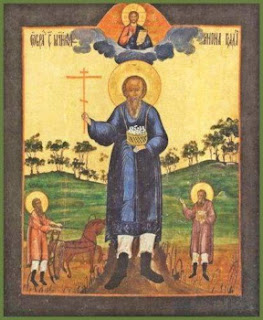
5 March - Saint Conon the Gardener.
The Holy Martyr Conon of Isauria was born in Bethany, a village situated alongside the Asia Minor city of Isauria, the people of which had accepted the Christian faith from the Apostle Paul. Saint Conon from the time of his youthful years was accorded the special protection of the "Archistrategos" ("Leader of the Heavenly Hosts") Michael, who appeared to him and assisted him in many a difficult circumstance in life.
At the insistence of his parents, Conon was betrothed to a maiden named Anna, whom he persuaded after the wedding to remain a virgin. The young spouses lived as brother and sister, devoting themselves entirely to God. Saint Conon brought also his parents to the Christian faith. His father, Saint Nestor, accepted a martyr's end for denouncing idol worshippers.
Having early given burial likewise to both his mother and wife, Saint Conon continued his service to God, devoting himself entirely to monastic works, fasting and prayer. In his declining years the holy ascetic was glorified with the gift of wonderworking. By virtue of his preaching and miracles many a pagan was converted to Christ.
When a persecution against Christians started in Isauria, one of the first to suffer was Saint Conon. They subjected him to fierce torments for his refusal to offer sacrifice to idols. But the people of Isauria, learning about the tortures to which the saint was being subjected, marched out with arms in hand in defense of the martyr. Frightened off by the people's wrath, the torturers fled, and the Isaurians found the martyr wounded and bloodied at the place of torture. Saint Conon desired in all this that he be granted to accept a martyr's end for the Lord.
Two years afterwards Saint Conon died peacefully and was buried alongside his parents and wife.

Advice You Can Bank On
A Catholic Perspective On Finances
Grocery Shopping in the 21st Century and How to Manage Modern Things
There are many changes that have been brought to us, whether we wanted them or not, in the wake of the coronavirus. We are reminded in 1 Thessalonians 5:18, “In all things give thanks; for this is the will of God in Christ Jesus concerning you all.” Some of the good our family has truly appreciated during these times is online grocery shopping. While it was available as an option pre-COVID, it was not something we saw as useful, or beneficial. Were we wrong!
Little did we know that it would save us so much at the “checkout”, and that impulse buying would be a thing of the past. “As a city that lieth open and is not compassed with walls, so is a man that cannot refrain his own spirit in speaking.” (Proverbs 25:28) Depending on the area you live, there is likely a chain grocery store that offers online grocery shopping. If you have never done online grocery shopping before, the set-up might take a little bit of time. And in doing good, let us not fail. For in due time we shall reap, not failing. (Galatians 6:9) And if you have just not tried online grocery shopping, let us explain to you why you should.
If we clipped coupons prior to online shopping, we’d have to search up and down the aisles to find the exact product listed on the coupon in order to cash-in on the savings at the register, or perhaps buy something we normally wouldn’t just to achieve the savings. Now, we don’t. Most stores have a page of coupons on their site, and you can simply select the coupon, and put that item directly in your cart from the coupon itself. This eliminates the hunting and searching aspect of grocery shopping, saving so much time, and a lot more money. Now, we’re regular “couponers”.
We can log into our grocery store website and add our items at the click of a button. We use the search function to type in our desired items and add it to our cart. When we have finished, we can select the option best for us to pick up our groceries. This has taken the power of the checkout stand (impulse buy area) completely off the map. If you are someone that has children in tow, they no longer can ask you for a pack of gum, or candy bar. While those items are inexpensive, it all adds up. We’ve managed to reduce our regular grocery receipt by $50 in impulse buys alone.
Another reason our family has embraced this change, aside from the money savings aspect, is the time savings aspect. Grocery trips used to take an hour, at least. If we forgot an item, it was usually at the other end of the store. If we couldn’t find an item, we’d spend several minutes, or more, searching for it. No longer is this the case. We simply drive down to the store between our expected arrival time we selected at the checkout, let the store know we are there, and then they load up your car with groceries and you are on your way back home. Frozen items are still frozen, and your trip to the grocery store is only how long it takes you to get there and back. You can, of course, elect for delivery, but there’s usually an extra charge for that.
If you make the same purchases regularly (bread, eggs, milk), you don’t have to re-search those items with each subsequent order. The site will remember your previous orders, and you can select “add all items to cart” for future orders. From there you can remove or add any items you wish. Picky eaters, or specific diets work well with online grocery shopping, too. You can search for specific items, like “gluten-free breakfast cereal”, or “nut-free” items, or you can filter for vegetarian options, and on and on.
We are so thankful to have “stumbled” upon this option, and it has worked wonderfully for our family. Every best gift, and every perfect gift, is from above, coming down from the Father of lights, with whom there is no change, nor shadow of alteration. (James 1:17)

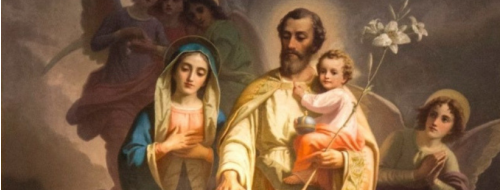 Family Matters
Family Matters
A Disease in the Eyes
In the last days of the apostle John, Christ sent a message to the Church at Laodicea, through him. Laodicea was a lukewarm church that had been hot and full of the reality of Christ at one time. Among other things, they had a disease in their eyes, and had lost their vision. Spiritually, they would not see anymore. They were beginning to cast off restraints, and Christ even told them they were naked, wretched, and blind. They were perishing. His counsel to them concerning their blindness was to “anoint thine eyes with eye-salve, that thou mayest see.” (Revelation 3:18) We all know that god is referring to the eyes of the heart in these verses. He finished by pleading with them, calling them back to Him, speaking words of true reality.
Behold, I stand at the gate, and knock. If any man shall hear my voice, and open to me the door, I will come into to him and will sup (eat) with him, and he with me. (Revelation 3:20)
Christ's words to the brothers and sisters at Laodicea were strong, yet true. He was outside their lives looking in. The reality of fellowship was gone. His voice was knocking, knocking, but they did not hear. They did not want to hear. Their ears were dull, and the eyes of their hearts were blind. He pleads with them to let Him in, through repentance. He promised them beautiful restored communion through the Eucharist, and assured them of his love.
Beloved, where is your vision? What do you see with the eyes of your heart? As you sit and read these words, how do they find you personally? When was the last time you heard from God, and you know it? Do you have eye disease like the Laodicean's did? They were thinking they had everything together, when in reality, they were falling apart. Maybe you feel these words are not proper to write in an article. However, let us reason together. I would be a very unkind friend to stir your heart about having a vision and then not tell you how you can get one.
Visions come from God. He is the author of every one of them. If there is no reality in your life, you will find it hard to get a vision and hold on to it. I want the instructions to be more than the “how to's” of raising children for God. What we see is very important. God always precedes the reality of what He is going to do with a vision. That is exciting if you know where you are going, because, according to the testimony of Abraham, what you see, you will have. However, if you do not see, that is very troubling because if you do not see, you will not have. What you see with the eyes of your heart now probably will determine where your family will be in five years.
Paul writing to the church at Ephesus, admonished them with an overflowing proclamation about God. He said that God was able (full of power): “to do all things more abundantly than we desire or understand, according to the power that worketh in us;” (Ephesians 3:20). That covers our dreams and visions completely. Let us get out side of ourselves to the place whre this “power that worketh in us” is working in us personally, and then the sky is the limit.
Prayer
Father, we bow before You, who sees. We know You see us even as we sit here pondering what we have read. Give us a vision for our homes, dear Lord. Open the eyes of our hearts to see. We desperately need You to work in our hearts this very moment. Help us as we contemplate the need of a Godly home with an open face before You. Soften our hearts to receive Your imprint of a Godly home. In the name of the Father and of the Son and of the Holy Ghost. Amen.


Books to feed your faith!
Lenten Instructions from the Roman Breviary
$9.95
The Roman Breviary is full of inspirational prayers and lessons. These lessons are compiled from the lessons of Matins. On Sundays and greater feasts Matins consists of three nocturns. Each nocturn consists of three psalms and three lessons. The first nocturn has lessons from Sacred Scripture. Since the Bible is readily available, this is omitted from this work. The second nocturn on the feast of saints gives their life story. It is these stories, which are most instructive. On Sundays, these lessons are an explanation either of the current Scripture or some other inspirational instruction and these are included here. The third nocturn is on the day's Gospel. The first lesson begins with a short quote from the Gospel of the day, followed by the beginning of the instruction. These are included here. On smaller feasts and ferial days, there is only one nocturn of nine psalms and three lessons. In Lent, these lessons are on the day's Gospel, while on other ferial days they are from Scripture. On minor feast days, the first two are from Scripture, the third on the day's feast. In Lent there are forty different Gospels read, and the lessons on these form the bulk of this work. The lessons in the Breviary come from the Fathers of the Church and are quite instructive. This work would serve as a good companion to Sunday Sermons of the Great Fathers, as it covers material not contained in this other excellent work. The Fathers of the Church bring out points we may not have considered in our meditations on the daily Gospels. We pray all find these instructions as fruitful as I have. We have included the instructions for the three Sundays prior to Ash Wednesday, Septuagesima, Sexagesima and Quinquagesima, as they form a remote preparation for the commemoration of the mysteries of our Redemption at the end of Holy Week.
The Liturgical Year: Lent (Volume 5)
$24.95
This is a fifteen volume set, which is being brought back into print for the edification of the Faithful. Anyone who wishes to appreciate the timeless Tridentine Mass and liturgy will find this set a valuable aid in that endeavor. Dom Gueranger has produced a most excellent work, which began the liturgical movement. We pray that this set of books will bring many more to a true appreciation of the Latin Mass and the Divine Office of the Catholic Church. At one time, under the impulse of that Spirit, which animated the admirable Psalmist and the Prophets, she takes the subject of her canticles from the Books of the Old Testament; at another, showing herself to be the daughter and sister of the holy Apostles, she intones the canticles written in the Books of the New Covenant; and finally, remembering that she, too, has had given to her the trumpet and harp, she at times gives way to the Spirit which animates her, and sings her own new canticle. From these three sources comes the divine element which we call the Liturgy. The Prayer of the Church is, therefore, the most pleasing to the ear and heart of God, and therefore the most efficacious of all prayers. Happy, then, is he who prays with the Church, and unites his own petitions with those of this Spouse, who is so dear to her Lord, that he gives her all she asks. It was for this reason that our Blessed Saviour taught us to say our Father, and not my Father; give us, forgive us, deliver us, and not give me, forgive me, deliver me. Hence, we find that, for upwards of a thousand years, the Church, who prays in her temples seven times in the day, and once again during the night, did not pray alone. The people kept her company, and fed themselves with delight on the manna which is hidden under the words and mysteries of the divine Liturgy. Thus initiated into the sacred Cycle of the mysteries of the Christian year, the faithful, attentive to the teachings of the Spirit, came to know the secrets of eternal life ; and, without any further preparation, a Christian was not unfrequently chosen by the Bishops to be a Priest, or even a Bishop, that he might go and pour out on the people the treasures of wisdom and love, which he had drunk in at the very fountain-head. For whilst Prayer said in union with the Church is the light of the understanding, it is the fire of divine love for the heart. The Christian soul neither needs nor wishes to avoid the company of the Church, when she would converse with God, and praise his greatness and his mercy. She knows that the company of the Spouse of Christ could not be a distraction to her. Is not the soul herself a part of this Church, which is the Spouse? Has not Jesus Christ said: Father, may they be one, as we also are one? and, when many are gathered in his name, does not this same Saviour assure us that he is in the midst of them? The soul, therefore, may converse freely with her God, who tells her that he is so near her; she may sing praise, as David did, in the sight of the Angels, whose eternal prayer blends with the prayer which the Church utters in time.
Will the Real Catholic Church Stand Up?
Kindle $2.99 / Paperback $9.95
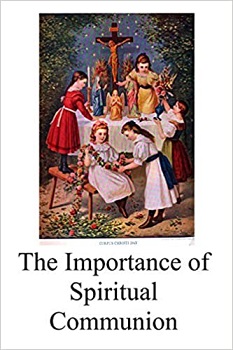
The Importance of Spiritual Communion
Kindle $2.99 / Paperback $5.99
If we cannot receive Holy Communion actually, then let us do so spiritually. These prayers and instructions have been gathered from the Saints and other venerated spiritual writers. Spiritual Communion has been a part of the spiritual life for decades. Growing up I was instructed to make a Spiritual Communion, when I could not go to Communion such as when I assisted at a second Mass. The same is true if one finds oneself at Mass, but not fasting. There are times coming, when it will be difficult, if not impossible to assist at the Holy Sacrifice of the Mass. We should be prepared for such times.
For More Good Traditional Catholic Books:

Giancarlo's Classic Spaghetti Aglio e Olio
Simple and delicious
Prep 10 minutes
Cook 22 minutes
Ready In 32 minutes
Ingredients
1 pound uncooked spaghetti
6 cloves garlic, thinly sliced
1/2 cup olive oil
1/4 teaspoon red pepper flakes, or to taste
salt and freshly ground black pepper to taste
1/4 cup chopped fresh Italian parsley
1 cup finely grated Parmigiano-Reggiano cheese
Directions
1. Bring a large pot of lightly salted water to a boil. Cook spaghetti in the boiling water, stirring occasionally until cooked through but firm to the bite, about 12 minutes. Drain and transfer to a pasta bowl.
2. Combine garlic and olive oil in a cold skillet. Cook over medium heat to slowly toast garlic, about 10 minutes. Reduce heat to medium-low when olive oil begins to bubble. Cook and stir until garlic is golden brown, about another 5 minutes. Remove from heat.
3. Stir red pepper flakes, black pepper, and salt into the pasta. Pour in olive oil and garlic, and sprinkle on Italian parsley and half of the Parmigiano-Reggiano cheese; stir until combined.
Serve pasta topped with the remaining Parmigiano-Reggiano cheese.
Arroz Rojo
A simple Lenten dish that goes well as a side or even as a main dish itself! If not using oil during Lent, you can dry-toast the rice in the pan, it will still turn out delicious!
2 cups rice
1 Tablespoon oil
1 garlic clove, diced
3 tomatoes, chopped
½ onion, chopped
4 cups vegetable broth
1 cups peas
2 carrots, chopped
1 chili pepper, chopped
Salt to taste
Add oil to a large pan on low heat.
Add rice and toast until golden.
Add garlic, tomatoes and onion; cook until mixture is soft.
Add the broth, peas, carrots, chili pepper and salt.
When it begins to boil, reduce the heat and cover until rice is fully cooked.
Enjoy!
Makes 4–6 servings
Video sermons and instructions: Timeless timely truths for living the Faith
After Conversion
Gluttony
Curiosity
We All Have a Vocation
Ash Wednesday - 2013

Encouragement for Today
Therefore encourage one another and build one another up.... I Thessalonians 5:11
We believe that through our assorted podcasts, Vlogs, audio downloads and devotional blogs, you will find an assorted Treasure Chest of...
- Sermons
- Classic Catholic Audio Books.
- Devotionals
- Scripture Studies
- Catechism Lessons
- Old-Time Christian radio programs
- Catholic Videos
...that will be a help in your faithful walk with the Lord.
LEARN MORE AT THE ENCOURAGEMENT FOR TODAY WEBSITE: https://www.encouragementfortoday.com
Truths From Genesis 1:1
Foundations Are Important
This word “foundation” essentially means “a base”. For instance, consider building a house. Builders construct the foundation, then the floor, and then the walls and roof. But without the foundation, the house would collapse. Or consider four building blocks. If we place one building block on the floor, then this block becomes a foundation (or base) for all the blocks that will be place on top.
If you put a second building block on the first one, then the first block is foundational to the second block, and the second block will be foundational to all blocks placed on it! Now, if you take a third block and place this on the second block, then the first block is foundational to the second the third blocks, and the second block is foundational to the third block.
Let's take a fourth block. Once you place the fourth block on top of the third block, you can say that the first block is foundational to the second block, and the second block is foundational to the third block, and the third block is foundational to the fourth block. Okay, now using this block example, let's consider Genesis 1-11 in regard to the topic of foundations.
As we study through the first 11 chapters of Genesis, we learn that the first verse in Genesis is foundational to the first chapter, and the first chapter is foundational to the first eleven chapters, and the first eleven chapters are foundational to the rest of Genesis, and Genesis is foundational to the rest of the Bible. Indeed, Genesis 1-11 is foundational to the rest of the Bible. Indeed, Genesis 1-11 is foundational to all Christian doctrine and to the Christian worldview.
Imagine suddenly pulling the bottom block out from under the other three. The whole structure would collapse. In a similar sort of way, if the foundational verse of the Bible is not true, the rest of the Bible would not be true either.
Psalm 11:3 states, If the foundations are destroyed, what can the righteous do? For instance, If God is not the foundation of everything-if there is no God, then trust in Jesus, and the Bible would be meaningless. That is why the first verse tells us there is a God- but not just any God, the one true God.
Catechism Catch-Up
Confirmation- An Indelible Mark Of A Christian Soldier
“Lest, therefore, this divine blessing (confirmation) may seem, through their fault, and to their most serious injury, to have been conferred on them in vain, the faithful are to be instructed... that it is not to be neglected, but that it is to be received with the greatest piety and devotion.
To begin with the name, it should be taught that this Sacrament is called by the Church Confirmation because, if there is no obstacle to the efficacy of the Sacrament, a baptized person, when anointed with the sacred chrism by the Bishop, with the accompanying solemn words: I sign thee with the sign of the cross, and confirm thee with the chrism of salvation, in the name of the Father, and of the Son, and of the Holy Ghost, becomes stronger with the strength of a new power, and thus begins to be a perfect soldier of Christ."-Catechism of the Council of Trent
Confirmation-An indelible sign which marks the Christian as a soldier of Jesus Christ
What are the tools that have been given us for struggling against the world, the flesh and the devil?
For though we walk in the flesh, we do not war according to the flesh. For the weapons of our warfare are not carnal, but mighty to God unto the pulling down of fortifications, destroying counsels, And every height that exhalteth itself against the knowledge of God, and bringing into captivity every understanding unto the obedience of Christ. (II Corinthians 10:3-5)
Finally, brethren, be strengthened in the Lord, and in the might of his power. Put you on the armour of God, that you may be able to stand against the deceits of the devil. For our wrestling is not against flesh and blood; but against principalities and power, against the rulers of the world of this darkness, against the spirits of wickedness in the high places. Therefore take unto you the armour of God, that you may be able to resist in the evil day, and to stand in all things perfect. Stand therefore, having your loins girt about with truth, and having on the breastplate of justice, And your feet shod with the preparation of the gospel of peace: In all things taking the shield of faith, wherewith you may be able to extinguish all the fiery darts of the most wicked one. And take unto you the helmet of salvation, and the sword of the Spirit (which is the word of God). By all prayer and supplication praying at all times in the spirit; and in the same watching with all instance and supplication for all the saints (Ephesians 6:10-18)
I looked up all the Scripture references to armour, searching for passages that would support and enhance the importance of wearing armour when charging off into battle. What I found was not exactly what I had expected. I found that Saul’s armour did not fit David and that Goliath’s armour was useless against David’s stone. I also discovered that a stray arrow found a crack in Ahab’s armour, killing the wicked king. It seems that the armour was, in reality, not very useful !
But then I realized that we are not called to wear the faulty body armour of Saul, Ahab, or Goliath. Rather, we must put on the unfailing armour of God! In fact, at the very moment that St. Paul wrote his letter to the Ephesians, he might well have been chained to a soldier wearing the armour of the Roman Empire. St. Paul could see firsthand how frail the defenses of man were against the prince of darkness. This is why he twice emphasized “the armour of God.” Also St. Paul seamed to be expanding on the words of the Old Testament prophet Isaiah, who had made a similar spiritual association for two of the articles of armour. “He put on justice as a breastplate, and a helmet of salvation upon his head:” (Isaiah 59:17).
Now we must be careful not to miss the importance of wearing all of the articles of the armour that God provides. Ephesians 6:11 says, “Put on the armour of God,” and Ephesians 6:13 declares, “Wherefore take unto you the armour of God.” and then 7 articles of the armour is mentioned. If you do not wear all seven articles then the armour is faulty. It should be all or nothing! This is where many Catholics fail. They take some of the armour, but forget one or two parts of the suit—and pay an eternal price for their neglect. Under the inspiration of the Holy Ghost, the apostle Paul attaches a spiritual association to seven implements of earthly armour. Let’s consider each of these articles of defense one by one to see what we can learn.
"Stand therefore, having your loins girt about with truth"
In Bible times, the girdle about the waist held together the soldier’s garments, which might otherwise hamper his movements while marching or engaging in combat. The spiritual significance is that God does not simply want us to point at the truth; He wants us to wear it and have it wrapped about us. Not only does the belt hold everything in place, but it also serves to carry the sheath that holds the sword of the Spirit for ready access. Some people have the sword of God’s Word, but without the belt of truth they come to reckless conclusions.
"But if I tarry long, that thou mayest know how thou oughtest to behave thyself in the house of God, which is the church of the living God, the pillar and ground of the truth." (I Timothy 3:15)
Understand that the Girdle of Truth held the sheath , that is the Church. And the sheath, the Church, held the sword of God's Word which is is truth handed down, truth spoken, and truth written. With out the girdle of Truth, and with out the sheath of the Church, what has happened is that those who have left the Church for some other Denomination took there sword with them (the Word of God) but did not take the girdle of Truth and nor did they take the sheath. Thus they had nothing to hold the rest of armour together. By not having Jesus the girdle of Truth (John 14:6), and by not having the sheath which is the True Church, the Catholic Church, the pillar and ground of the truth, They all "have gone astray, every one hath turned aside into his own way:" (Isaiah 53:6)
Never forget that wearing the girdle of truth also means wearing Christ, for He is “the way, the truth, and the life” (John 14:6). This is why Paul said: “For as many of you as have been baptized in Christ, have put on Christ.” (Galatians 3:27)
Breastplate of Justice ( Righteousness)
"One who has put on a sturdy breastplate is difficult to wound. Especially well-protected are those essential parts of the body upon which life depends." "One protected by such a breastplate of justice will not be like a vulnerable stag that receives the arrow to the liver. He will not lapse into rage or lust. Rather he will be protected, having a clean heart, having God as the fashioner of his breastplate, since he fashions the whole armour for every one of the saints."-St. Jerome
With all watchfulness keep (guard) thy heart, because life issueth out from it. (Proverbs 4:23)
What is Justice?
My tongue shall pronounce thy word: because all thy commandments are justice (righteousness). (Psalms119:172)
Whosoever committeth sin committeth also iniquity; and sin is iniquity. (1 John 3:4)
Awake, ye just, and sin not. For some have not the knowledge of God, I speak it to your shame. (1 Corinthians 15:34)
To be just is to do what is just or right in God's eyes. God's commandments are righteous. In contrast, sin is iniquity, and iniquity is the opposite of righteousness. So to be righteous is to obey God's laws of love.
And we are all become as one unclean, and all our justices (righteousness) as the rag of a menstruous woman: and we have all fallen as a leaf, and our iniquities, like the wind, have taken us away. (Isaiah 64:6)
Righteousness may deliver from death, but whose righteousness are we talking about? The above scripture makes it clear that our individual level of righteousness is on par with "rags of a menstruous woman"—and when you're looking to protect yourself from death, filthy bloody rags make for a lousy breastplate.
In those days shall Juda be saved, and Israel shall dwell confidently: and this is the name that they shall call him: the Lord our just one (our righteous one). (Jeremiah 23:6)
It is God's Justice, God's righteousness, and not our own, which must serve as our breastplate and defense against Satan.
Feet Shod with the Preparation of the Gospel of Peace
“The gospel is to be carried abroad. It is to be preached among the nations. Wherever, then, it is preached, it must be heard. But so that all may hear, one must use one's feet to travel. And so do we travel with haste and urgency.”- St. Marius Victorinus
“Your footwear is not put on in order that you may walk about foolishly but to accomplish the course of the gospel. In this way you will receive the prophetic blessing: 'How beautiful upon the mountains are the feet of him that bringeth good tidings.'”(Isaiah 52:7)- St. Theodoret
How fitting is it that the words of (Isaiah 52:7) come immediately before he presents the greatest and most complete Messianic prophecy in all the Old Testament. And that is Chapter 53 where he gives us a pen portrait of the suffering Saviour and tells us of the glorious work of the cross He was to undertake in order that the the sin question might be settled forever to the satisfaction of God.
How then shall they call on him, in whom they have not believed? Or how shall they believe him, of whom they have not heard? And how shall they hear, without a preacher? And how shall they preach unless they be sent, as it is written: How beautiful are the feet of them that preach the gospel of peace, of them that bring glad tidings of good things! (Romans 10: 14-15)
The early fathers are very clear that Romans 10:14-15 is a reference to the Apostles and those who have been ordained after them:
"Paul quotes the prophet Nahum by talking about feet he means the coming of the apostles who went around the world preaching the the coming of the kingdom of God."-Ambrosiaster
There is a difference between Preaching and Witnessing
To Preach:
To be a herald, to officiate as a herald; to proclaim after the manner of a herald; it is always with the suggestion of formality, gravity and an authority which must be listened to and obeyed.
To Witness:
A witness in a legal sense. In an historical sense it is one who is a spectator of anything, e.g. of a contest. In an ethical sense those who after his example have proved the strength and genuineness of their faith in Christ by undergoing a violent death
The commandment to Preach the Gospel through out the world was given to the Apostles and there Successor's.
And he said to them: Go ye into the whole world, and preach the gospel to every creature. (Mark 16:15)
All the Early Fathers would agree on this.
"He willed that the apostles as spiritual predecessors of the new humanity would be sent by his Son into the entire world, so that all humans sufferers might come to the knowledge of their creator."- Novatian
"Then in this same way the apostles went out to found churches in every city possible. It is from these apostolic churches that all the subsequent churches, on after the other, derived the rule of faith and the seeds of doctrine. Even to today they continue to dervie from the apostles that which is necessary in order that they are able to deem themselves as apostolic, as being the offspring of apostolic churches."- Tertullian
The commandment to be Witnesses was given to all Catholics not just to Apostles and there Succesors.
But you shall receive the power of the Holy Ghost coming upon you, and you shall be witnesses unto me in Jerusalem, and in all Judea, and Samaria, and even to the uttermost part of the earth. (Acts 1:8)
It is the Holy Ghost who empowers you at your conformation to give testimony to those around you of what God has done for you through Christ and His Church, and prompts you to witness to a lost world.
So whether given by the Church to Preach the Gospel of Peace or as confirmed Catholics being witnesses to the Gospel of Peace, We all should be shod with the Gospel of Peace, telling everyone we meet what God can do, has done, and will do for all those who believe that Christ was born, died and was resurrected for each and every one of them. That they must repent of their sins, and be baptized into the Church.
The Shield of Faith
Now faith is the substance of things to be hoped for, the evidence of things that appear not. (Hebrews 11:1)
But without faith it is impossible to please God. For he that cometh to God, must believe that he is, and is a rewarder to them that seek him. (Hebrews 11:6)
The Roman shield of the time was called a scutum. This type of shield was as large as a door and would cover the warrior entirely. Such a shield was not just defensive but could also be used to push opponents. When fighting as a group, a body of troops of soldiers could position their shields so as to form an enclosure around themselves, called a testudo (“tortoise”). This was especially helpful to protect against arrows launched from the walls of cities they were attacking. Shields, often made of wood and then covered in hide, when wet, could extinguish flaming arrows.
Clearly, a shield is vitally important to a soldier. It provides a blanket of protection. It is meant to be taken up in all circumstances. It is the first barrier against the enemy’s attack. Often, shields were painted with identifying marks; a Christian who takes up the shield of faith identifies himself as a foot soldier who serves the Commander of the Lord’s army (see Joshua 5:14).
Satan’s attacks can sometimes cause us to doubt God. Faith prompts us to believe God. We give in to temptation when we believe what it has to offer is better than what God has promised. Faith reminds us that, though fulfillment of God’s promise may not be readily visible to us, God is true to His Word. When Satan attempts to plague us with doubt or entice us with instant gratification, faith recognizes the deceptiveness of his tactics and quickly extinguishes the arrows. When Satan accuses us, faith chooses to believe that Jesus has redeemed us and that there is no more condemnation.
All believers have this promise: “For whatsoever is born of God, overcometh the world: and this is the victory which overcometh the world, our faith.” (1 John 5:4). Faith is a protective barrier between us and the schemes of Satan. When we believe God and take Him at His word, we remain grounded in truth, the lies of the enemy lose their power, and we become overcomers. In that way, faith is our shield.
Helmet of Salvation
The fifth piece of God’s armor is represented by the Roman soldier’s helmet, without which he would never enter battle. Some of the helmets were made of thick leather covered with metal plates, and others were of heavy molded or beaten metal. They usually had cheek pieces to protect the face.
The purpose of the helmet, of course, was to protect the head from injury, particularly from the dangerous broadsword commonly used in the warfare of that day. That was not the much smaller sword mentioned later in this verse, but was a large two–handed, double–edged sword (rhomphaia, see Revelation 1:16; 2:12; 6:8) that measured three to four feet in length. It was often carried by cavalrymen, who would swing at the heads of enemy soldiers to split their skulls or decapitate them.
The two dangerous edges of Satan’s spiritual broadsword are discouragement and doubt. To discourage us he points to our failures, our sins, our unresolved problems, our poor health, or to whatever else seems negative in our lives in order to make us lose confidence in the love and care of our heavenly Father, and to begin to doubt and question God's love and care for us.
The Sword of the Spirit Which is the Word of God
The Word of God is the source of victory over the enemy. It is the sword of the Spirit which is the Word of God that gives us the weapon against our enemy.
The previous armor has been primarily defensive. But now we come to a piece of armor that is both defensive and offensive.
Now the word sword here is a very interesting term. It is the word in the Greek, machaira, and it’s a very common word in Greek, a very common word even in the New Testament. The other word for sword, rhomphaia. It refers to that large broadsword we mentioned. It could be as long as forty inches plus, longer than a yardstick, a great, broad, two-edged sword that was wielded with two hands. That is not in view here. This is the more normal sword carried by the soldiers, the machaira, anywhere from 6-inch long daggers to 18-inch swords or so. They were put in a sheath or a scabbard by the side of the soldier and were used in hand-to-hand combat. That’s what’s in view. In fact, by the way, machaira, is the word used to describe the swords, in Matthew 26:47, that were in the hands of the Romans who came to capture Jesus while He was in the garden. It was the normal Roman soldier’s sword. It is the same word used to speak of the sword with which St. Peter cut off the ear of the servant of the high priest. It is the same word used, machaira, to speak of the sword used in Acts 12:2 to kill St. James. It is the same word, machaira sword, used to speak of the sword used against the heroes of the faith in Hebrews 11. It is the normal sequence of sizes in this machaira, concept that was the everyday routine sword used by soldiers. But in each case it seems apparent that a machaira, had to be used in a rather precise way to be effective. Now St. Peter simply cut off an ear with it. I’m sure that if he had a rhomphaia he’d have come all the way from the ear to the tip of the guys toe. The machaira, had to be used as a precise weapon.
Again, the sword as a weapon is both defensive and offensive. Let’s talk about its defensive capability. If you’ve ever seen anybody use a sword, you know that a sword is used as much to parry a blow as it is to inflict one. And a person who uses a sword uses it along with that part which covers his hand to defend himself against the blows of his enemy. And the way you use the Word of God defensively is really critical. Satan comes to attack you with his temptations. He comes to attack you with his assaults, and you can literally parry his blows with the proper use of the Word of God.
We see Jesus, in Matthew chapter 4 and in Luke chapter 4 parrying with Satan. Satan comes to Him three times and Satan attacks Him with three direct temptations.
Notice at the end of Ephesians 6:17 it says the sword of the Spirit is the Word of God. The term, “Word,” here is not the greek word logos. Logos is a term meaning word that speaks of a broad or general reference. "Word" here is the word rhēma, and it means a specific statement. It isn’t talking about a broad knowledge. It’s talking about a specific statement. The sword of the Spirit is the specific statement of God. You must learn to know the total of the Word of God so that you know the specifics and be specific in the use of the Word of God.
This is why you must learn the principles of the Word of God, and that’s why you have to study to show yourself approved unto God. We need to study scripture, read the commentaries of the Early Fathers, listen closely to what the Church teaches. Know your Catechism. You see when we as Catholic speak of the Word of God we can be speaking of it in three ways:
The Living Word of God, Jesus himself.
And the Word was made flesh, and dwelt among us, (and we saw his glory, the glory as it were of the only begotten of the Father,) full of grace and truth. (John 1:14)
The Spoken Word of God.
And he (Jesus) was preaching in the synagogues of Galilee. (And) the multitudes pressed upon him to hear the word of God, (Luke 4:44; 5:1)
And when they had prayed, the place was moved wherein they were assembled; and they were all filled with the Holy Ghost, and they spoke the word of God with confidence. (Acts 4:31)
The Written Word of God
Carefully study to present thyself approved unto God, a workman that needeth not to be ashamed, rightly handling the word of truth. (2 Timothy 2:15)
All three, The Living Word, The Spoken Word, The Written Word, are considered The Sword of the Spirit. And all three are needed as part of your armour when battling against principalities and power, the rulers of the world of this darkness, the spirits of wickedness in the high places.
All Prayer
The last of the armaments was really an attitude. Any general knows that victory almost always depends on which army has the element of surprise. In the story of Gideon, the soldiers were chosen based upon their watchfulness, and they caught the enemy sleeping and won through surprise. (See Judges 7) Even the best of armor is almost useless if the soldiers are found dozing. We are commanded to be "watching with all instance (all perseverance)”
The prayer mentioned here is not just any prayer. No, it is more specific then that. St. Paul says, "watching with all instance and supplication for all the saints" We are to be praying for our fellow Christians, our fellow Saints.
St. Paul lived what he preached!
"Therefore we also, from the day that we heard it, cease not to pray for you" (Colossians 1:9)
"Wherefore I also, hearing of your faith that is in the Lord Jesus, and of your love towards all the saints, Cease not to give thanks for you, making commemoration of you [remembering you] in my prayers." (Ephesians 1:15-16)
"Your battle Buddies are always together and that allows them to never feel like they're alone," he said. "The idea is to let Soldiers feel like someone's always got their back."- Sgt. 1st Class Casey Vanzant, A Company, 1st Battalion, 13th Aviation Regiment platoon sergeant.
That's how we as the Militant Saints should be. We should always have each others back in prayer. But not only should we be praying for each other but also for the Suffering Saints in Purgatory. For they are just as much as part of the "for all saints" as the Militant are. (see II Maccabees 12:39-46)
READ MORE FROM THE TRADITIONAL CATECHISM AT THE WEBSITE: https://www.traditionalcatechism.com
Living Catholic:
Twelve “Tongue Tamers”: Scriptures About Controlling Your Words

Twelve “Tongue Tamers”
Scriptures about controlling your words
The following Bible verses are a few of many that address the power of words and your responsibility for what you speak. Memorizing and meditating on these Scriptures and others can help you remember to speak with wisdom and discretion.
-
“He that keepeth his mouth keepeth his life: He that keepeth his mouth, keepeth his soul: but he that hath no guard on his speech shall meet with evils.” (Proverbs 13:3).
-
“Hast thou seen a man hasty to speak? folly is rather to be looked for, than his amendment.” (Proverbs 29:20).
-
“He that answereth before he heareth sheweth himself to be a fool, and worthy of confusion.” (Proverbs 18:13).
-
“But I say unto you, that every idle word that men shall speak, they shall render an account for it in the day of judgment.” (Matthew 12:36).
-
“Let no evil speech proceed from your mouth; but that which is good, to the edification of faith, that it may administer grace to the hearers.” (Ephesians 4:29).
-
“A man rejoiceth in the sentence of his mouth: and a word in due time is best.” (Proverbs 15:23).
-
“He that keepeth his mouth and his tongue, keepeth his soul from distress.” (Proverbs 21:23).
-
“A mild answer breaketh wrath: but a harsh word stirreth up fury.. . . . A peaceable tongue is a tree of life: but that which is immoderate, shall crush the spirit.” (Proverbs 15:1, 4).
-
“Even a fool, if he will hold his peace shall be counted wise: and if he close his lips, a man of understanding.” (Proverbs 17:28).
-
“The words of the double tongued are as if they were harmless: and they reach even to the inner parts of the bowels.” (Proverbs 18:8).
-
“For he that will love life, and see good days, let him refrain his tongue from evil, and his lips that they speak no guile.” (I Peter 3:10).
-
“And if any man think himself to be religious, not bridling his tongue, but deceiving his own heart, this man's religion is vain.” (James 1:26).
To Learn More Principles For Life Go To: Resources: Principles of Life


Pray for the Holy Father! Pray with the Holy Father!
- Your prayers are asked this month and every month for the intentions of the Holy Father, Pope Michael.
- Please pray for the success and growth of the new Chrysostom Bible Institute. Check out the wonderful work it is doing and see how you can get involved!
- Your prayers and support are asked in a special way for the soon to be established House of Prayer.
- Pray especially that the Holy Ghost inspires and helps us prepare spiritual manuals and days of recollection to make available to all.
- Keep in your prayers our Podcast Ministry, a new way to reach out in the missionary work of the Church! We ask for prayers for our other activities world wide. We have made good contacts in the Philippines and Japan and ask prayers that these contacts will bear much fruit for the salvation of souls.
- Be sure to keep St. Helen Catholic Mission in your prayers. Why not go on over to the site now and see what they have to offer and how you might be able to help!
- Also we ask you to keep in prayer our increasing missionary work in the United States and elsewhere.
- Pray for those outside the Church and those who do not know God, that they may see the light of grace and be led safely home to the refuge of the Holy Catholic Church.
- As always, we also ask that you pray for yourself! Never forget your own state of soul. God is calling you to His service in His love. We know that our Lord can count on you to answer.
- We are all praying especially for you, too. May you correspond with every grace of God!
- In what other needs or intentions may we pray for you? Let us know!
- Let us remember that the Church runs on prayer. Without your prayers, God will not work in hearts and souls to bring them to a knowledge of the truth. (I Timothy 2:4)


To Donate online go to:

To Donate by Mail:
Our address is
Vatican in Exile
829 NE Chester
Topeka, Kansas 66616
Make Checks payable to:
Vatican in Exile


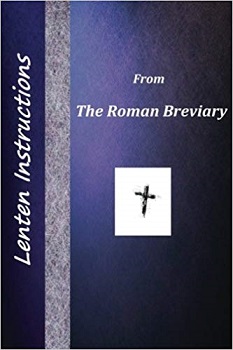
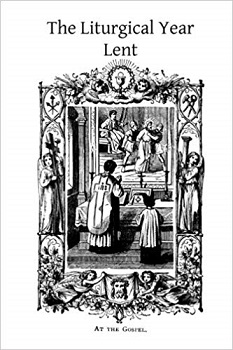
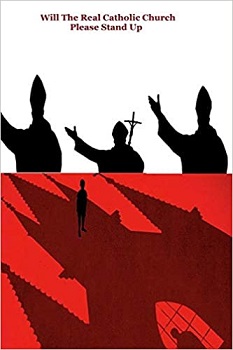











 Follow
Follow


